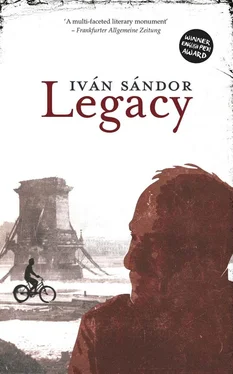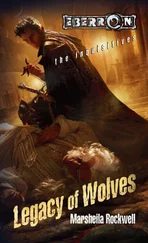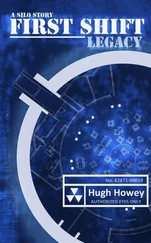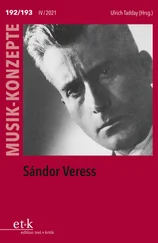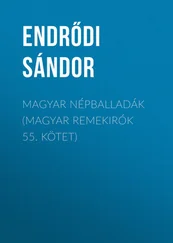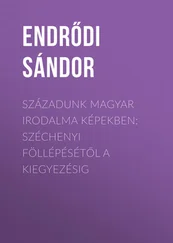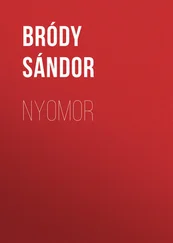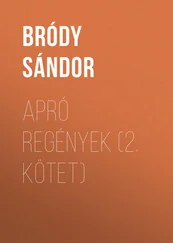Sometimes I am able to find a seat on the tram, sometimes they do. They talk. After a while we exchange greetings. They usually converse in such a way that the slim, fair-haired freckled girl does most of the talking, and the serious-looking brunette nods. As if she were meanwhile thinking of something other than what they are speaking about and only stirring when the freckled girl laughs. The laughter is provocative, and the other girl looks around to see who heard it; I snatch my own gaze away so that she doesn’t see I am looking at them.
I recognize them from the window in the corridor at school when there is a girls’ handball match in the schoolyard for their PT class; they are in the same team. The freckled girl is the nimbler and has a more powerful throw; the serious-looking girl draws her eyes together in seeking out her playing partner, and she passes the ball accurately. Quite a lot of my classmates are standing by the window when one of the players in the opposing team hits the fair-haired freckled girl below the stomach, and one boy says that for her that must have felt as if she were being screwed. You dopey twit, says another classmate, that’s quite a different feeling; it hurts her in exactly the same way as it would you if a ball accidentally hit you in the same place.
She has to stretch out on the ground. Her friend runs across, bends over her, massages the spot and makes her exercise.
The next day the boy who had been ticked off arrives panting to report that he has found a hole in the wall of the shower room next to the gym hall. He had stacked one jumping board on to another and stood on those, and the fair-haired freckled girl and the serious-looking brunette were in there naked, scrubbing each other’s backs, and when they turned their behinds had been touching. Get lost, says the other classmate, who had reproved him the previous day. Your arse would touch mine if there were a number of us taking showers.
I order a second glass of cognac. If Györgyi has set me off on a track she will have to deal with the consequences, although everything had made me unsure of myself; the bodies of the two girls under the shower, in a tight space, squeezed against one another. Ági, the freckled girl, liked to run cold water immediately after the hot. Klári opens the door. The aisle is empty. She pulls a towel off the bench she had put there previously and begins to rub herself dry. Her skin is flushed from the change of temperature, and unexpectedly she starts whispering about her boyfriend. Both dry themselves. Ági, prompted by an urge incomprehensible to Klári, spreads her arms. They have often taken a shower together, even compared breasts, but Klári still feels Ági’s body has changed, and she does not understand why Ági is looking so intently at her breasts. Both feel embarrassed and would rather not look one another in the eye, but they are driven by some unknown feeling. Ági speaks, and her breast swells. It happened yesterday evening, she says. What? Klári asks, even though she has no doubt what happened. You know — that , Ági whispers, with Miklós. But where? At his place. They had never used the kinds of words by which some of the other girls in the class liked provocatively to speak about it, so it had always been that . Ági stretches, her breasts quiver. Klári pats her hair and kisses her shoulder and both giggle.
All the people from yellow-star houses in the XIVth District were assembled at the KISOK football ground. Maybe Ági, too, as well as Klári’s mother and grandmother had been sent to the brickworks in the same column as us, but, being over sixteen and the grandmother nowhere near sixty, in which batch had they been dispatched towards Hegyeshalom? Luca even told me that Klári had seen when Ági and her mother lined up in the group headed for the gas chamber and had run after them, but a German kicked her back. I had seen photographs of skeleton-thin naked bodies queuing up and setting off for the whitewashed rectangular buildings between armed men and dogs; maybe that was why I had suppressed in myself what Luca told me about it, the reason she was recounting it to me. But now I have to make an effort to see through Klári’s eyes the shaven heads and napes of the neck and then later recall the nape of Ági’s neck, the nape of her mother’s neck, the spectacle of the two chimneys of the crematorium. It’s rather as if the roll of film had been exposed to light: they vanish, but the memory of the necks, the armed men and the dogs remains. The picture may be of even poorer quality with the passage of years, but there are times when everything is sharply visible, usually while dreaming. And, on waking, the Christmas tree on the Appellplatz, the soldiers are kicking two escapees. The gallows have been erected next to the Christmas tree, and everyone is driven out of the barracks. While the hanging is in progress the candles are lit on the tree. Ági’s body was as filthy and smelly as her own; she did not want to smell her mother’s body. The stools are kicked away from under the legs of those on the gallows.
I go to the toilet.
On my return I ask for fresh sheets of paper from the waitress. She rushes off, no doubt again to the office, but this time she returns more speedily, and later I give her a double tip.
On the back of the two pictures Györgyi sent are captions. On the first is ‘Klári and Ági in 1943’; on the second ‘Mother and Father in 1945, not yet married’.
The setting of the second picture is easily identified as the terrace by the lake in the City Park. In the background is the flight of steps in front of the Műcsarnok, the Art Gallery, and the person taking the photograph must have had their back to the lake. One can readily discern a chequered tablecloth and two glasses of beer. Klári has quite short hair; not long before she would have still had a shaved head was my first thought on seeing the picture. Her face is angular, not oval as in the other picture. The shape of the chin is also changed, having slipped forwards and become more pointed. She has thrown herself back on the seat as if she wants to keep herself far away from the man sitting opposite her.
The man is tall and broad-shouldered. Short-sleeved shirt; taut arm muscles on display. He has a thick head of hair, dark and combed back with a wave at the front. The two are not looking into the lens of the camera nor at one another. I wonder who they asked to take the picture and, having asked that person, who they are not looking at, the camera or one another?
According to a note I made in the depths of one of my files, which has been hiding on the lowest shelf for nearly a quarter of a century, Luca said that Miklós was a very decent young man. Klári had brought him round once to meet her but that had been after they got married, maybe in 1956 or 1957.
In other words, something like ten years after the photograph was snapped.
‘Miklós is tall, athletic, black hair, used to live on the corner of Kolumbusz Street and Erzsébet Királyné Road,’ I noted. What I did not make a note of was that maybe around twenty-five years before I may have seen Miklós when we travelled together with the girls on a number 67 tram to the school because he was dating Ági at the time, so he would be bound to have known Klári as well. He must have known they were friends. He must have had a good idea that Ági had told her they had made love, even though both she and he had sworn that that would remain a secret. He must have had a good idea that Ági had shown Klári the letter he had sent when doing labour service at Bustyaháza, because on the cards he got in reply there was always written ‘Klári sends greetings’.
How could he have known that they were taken away together on 15 November 1944, first to the KISOK football ground then the Óbuda Brickworks? At that time he himself was being marched somewhere near Kassa on the way to Germany.
Читать дальше
